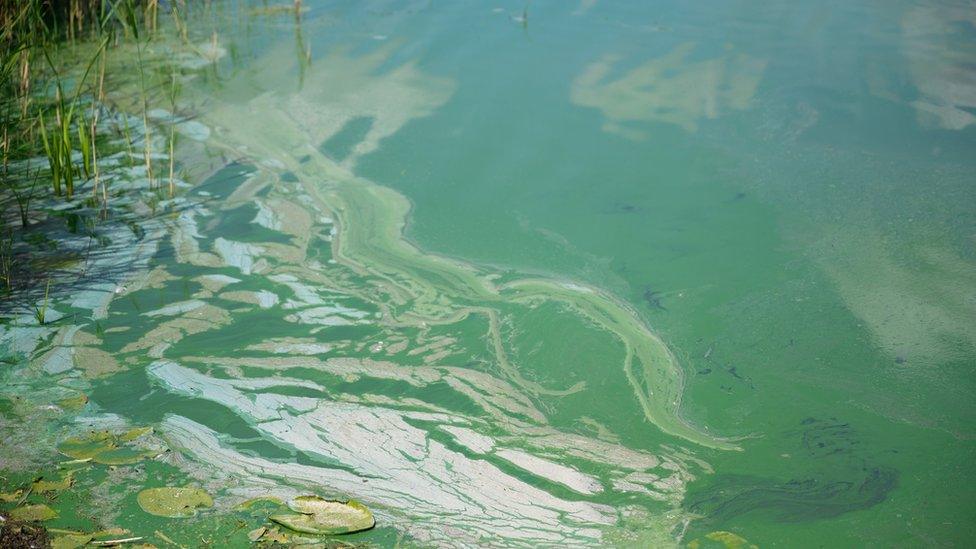Stormont: SDLP bids to recall assembly over Lough Neagh 'crisis'
- Published
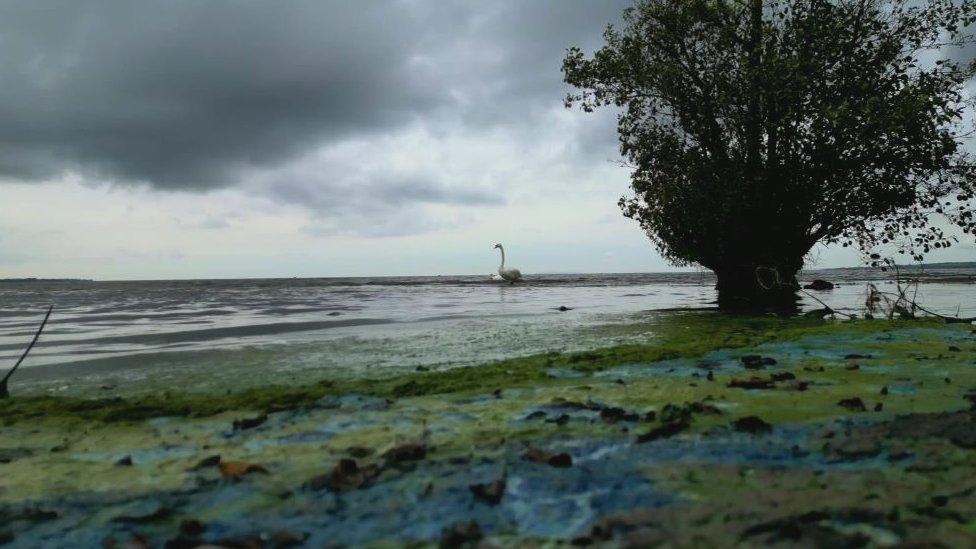
Blue-green algae has been found in waters in and around Northern Ireland over the summer
The Social Democratic and Labour Party (SDLP) has launched a fresh bid to recall the assembly to discuss the "ecological crisis" on Lough Neagh.
The party's recall motion will require 30 signatories to bring MLAs back to the assembly chamber.
Northern Ireland has been without a functioning government since February 2022.
The SDLP motion calls on the assembly to declare "an ecological crisis in Lough Neagh".
Protesters held a 'wake' at Lough Neagh on Sunday to highlight their fears that the lough is dying.
Campaigners said pollution is killing the lake, with wildlife and birds suffering after blue-green algal blooms over the summer.
Lough Neagh supplies half of Belfast's drinking water and 40% of Northern Ireland's drinking water overall.
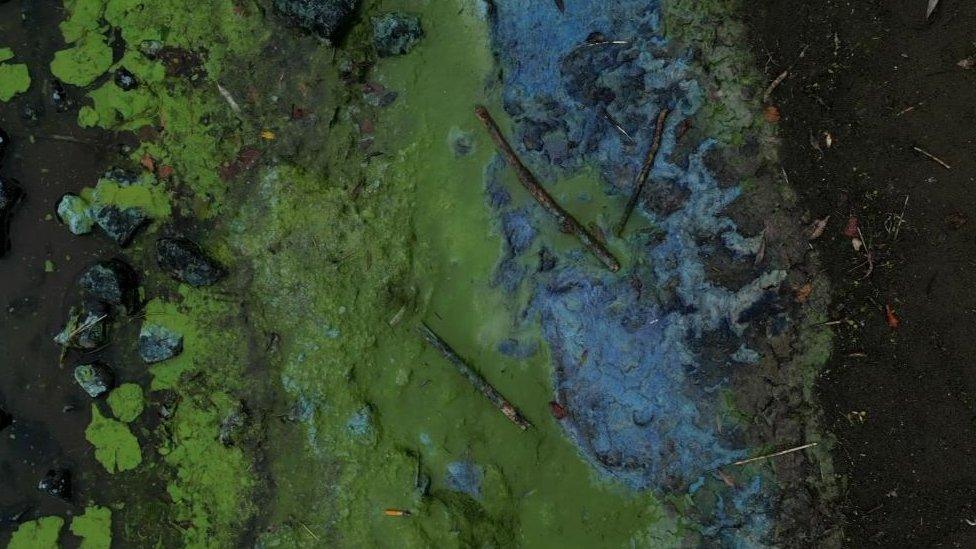
Earlier, archbishops described the lough, in its current state, as a "danger"
The SDLP's recall motion also calls on MLAs to acknowledge "the complex characteristics of biodiversity and ecological breakdown on the lough which includes high concentrations of phosphates and nitrates from agricultural runoff".
It also questions "the durability of the waste water infrastructure" and highlights the impact of the climate crisis on temperatures.
The SDLP motion calls on the assembly to "accept the role successive executives have played in failing to mitigate this crisis".
It warns that short-term mitigations and a long-term recovery plan needs to be put in place.

The SDLP's Matthew O'Toole said "intense, coordinated and cooperative action" is needed
SDLP Stormont leader Mathew O'Toole said: "The ecological crisis unfolding in front of our eyes on Lough Neagh is a catastrophe on a level that far outstrips any other we're facing right now.
"It demands intense, coordinated and cooperative action at every level in response."
The Northern Ireland Executive has not fully functioned since the Democratic Unionist Party (DUP) pulled its first minister out of office in protest over post-Brexit trade rules known as the Northern Ireland Protocol.
The assembly was last recalled in February in a bid to pass organ donation legislation.
But the DUP failed to support the election of a speaker and in the end the legislation was passed at Westminster.
'Too slow'
Earlier on Tuesday, church leaders in Northern Ireland called for a taskforce to be formed to tackle the issues of blue-green algal blooms in Lough Neagh.
The Catholic Archbishop of Armagh Eamon Martin and Church of Ireland Primate Archbishop John McDowell of Armagh made the comment in a joint statement.
The archbishops are concerned the response has been "too slow".
In their statement, the archbishops described the blue-green algae as a "dire threat".
"Collectively, we are endangering a natural asset that provides water to hundreds of thousands of families across Northern Ireland, sustains diverse fish varieties, supports wildlife and offers employment opportunities to thousands of people across the area."
Despite reassurance, they said the algae bloom persists and "poses a real threat to livestock, pets and humans".
The church leaders said we are facing a "environmental disaster" and work must be done before the lake reaches the point of no return.
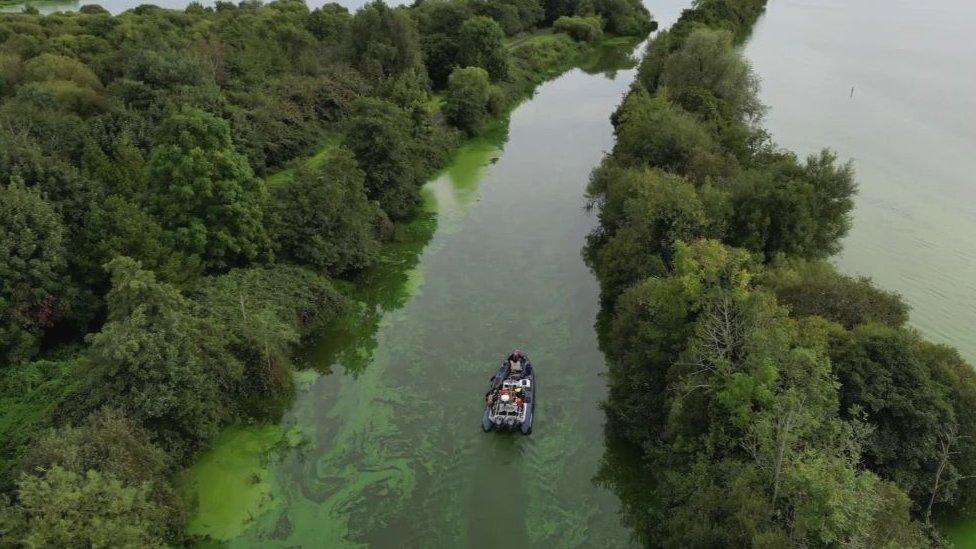
Lough Neagh supplies half of Belfast's drinking water
"Whilst multiple stakeholders debate the remit of responsibility, Lough Neagh and those who live near and around it suffer," the statement read.
"There is a clear need for decisive leadership. We must identify the causes of pollution and devise an action plan capable of arresting the decline."
They added: "Lough Neagh ought to be the jewel in our tourism and recreational crown and not a danger to life, flora and fauna.
"Our appeal is that a taskforce comprised of experts and relevant agencies be formed immediately and instructed to submit a report outlining procedures and actions required to avert a disaster within a short timeframe."
Related topics
- Published17 September 2023
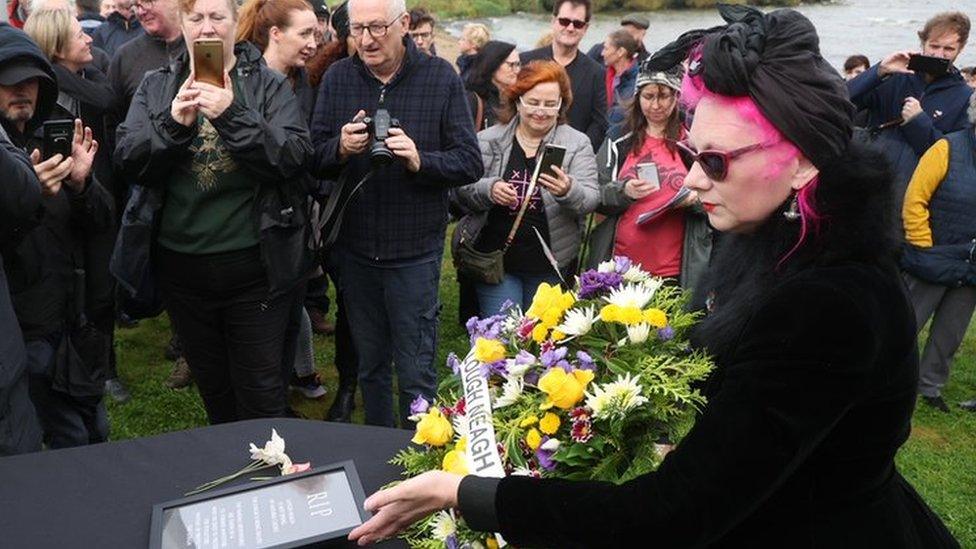
- Published3 October 2023

- Published10 August 2023
